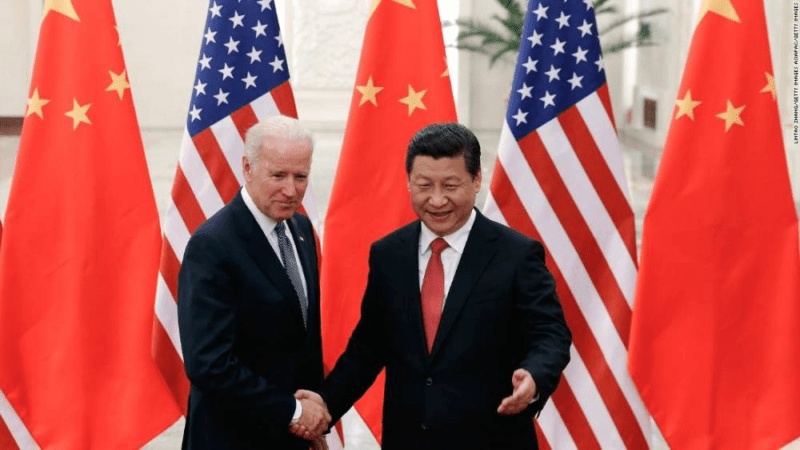Dan Pearson, a former chairman of the US International Trade Commission, is a trade policy fellow at Americans for Prosperity. The opinions expressed in this commentary are his own.

As US Trade Representative-designate, Katherine Tai finds herself in an ironic situation: The most important country she will have to push to open its markets — a core component of USTR’s mission — is the United States.
In the likely event she is confirmed in the new role, Tai will face an abundance of challenges.
Protectionist measures put in place by the Trump administration have taken USTR far away from its mission statement of “opening markets throughout the world to create new opportunities and higher living standards for families, farmers, manufacturers, workers, consumers and businesses.” Instead of opening markets, the effect of the trade war has been to restrict market access, reduce economic opportunities and lower living standards. There is an impressive array of tariffs to be rolled back. By picking a few “winners” — the handful of industries that administration officials sought to protect from competition — the Trump team also created a huge set of “losers” — businesses and consumers that require or prefer some imported products. US businesses and consumers have suffered from higher prices and reduced choices for many imported items including solar panels, washing machines, steel, aluminum, olives, whiskey, wine, cheese, yogurt and airplanes, as well as tariffs on hundreds of different products from China. The term “economic welfare” describes the overall level of living standards and prosperity in a society. Tai will want to follow the guidance of economists who have argued for decades that economic welfare always will be improved when tariffs are removed. This can be demonstrated through sophisticated mathematic proofs, but it also can be explained in ways that make sense to non-economists.Read More

How China is devastating Australia's billion-dollar wine industryAluminum provides a helpful illustration. Roughly half the aluminum used in the United States is produced domestically; the other half is imported. When the 10% aluminum tariff went into effect, prices for both imported and domestic aluminum rose, which is a normal market response to reduced competition. US aluminum producers benefited by receiving higher prices on the 50% of the market they serve. However, companies that buy aluminum to manufacture higher-value products paid the artificially elevated price on 100% of domestic consumption. The additional cost for 100% of the market is much greater than the benefit received by US producers, so the economy as a whole is worse off. The tariff makes our country poorer. The harm done by the trade war has had measurable consequences. As of September 2020, the Tax Foundation reports the tariffs have cost Americans $80 billion in additional taxes and lowered employment by 179,800 jobs. The American Action Forum calculates the increased costs to consumers from higher prices to be $57 billion annually. This self-inflicted economic damage will continue unless the Biden administration revokes the tariffs.Then there are the considerable costs of retaliation by foreign nations against poorly considered US tariffs. A wide range of politically sensitive American exports has been targeted. A few of them are roasted coffee, motorcycles, sleeping bags, toilet paper, steel, aluminum, bourbon whiskey, soybeans, pork, cheese and apples. Using 2018 data, the Congressional Research Service determined that more than $97 billion of US exports were facing new restrictions. The Tax Foundation estimates that retaliation has reduced US employment by 30,000 jobs.

Biden says call with Xi was 'robust,' but China doesn't seem too concernedLarge job losses due to US tariffs are explained in part by the reality that roughly half of all imports serve as industrial inputs. Factories across the country have had to absorb this unwarranted cost increase, thus becoming less competitive when contending with attractively priced imports. It’s hard to thrive as a manufacturer when the government is going out of its way to raise your costs.Tai has offered a vision for her upcoming role: “US trade policy must benefit regular Americans, communities and workers. And that starts with recognizing that people are not just consumers — they are also workers and wage earners.”
Let’s hope that benefiting “regular Americans, communities and workers” means quickly terminating the trade war and once again allowing buyers and sellers the freedom to do business around the globe. In essence, we are involved in a seemingly endless trade war being waged by the US government against the American economy. Ending it would honor USTR’s stated mission of creating “new opportunities and higher living standards” for Americans.
Source: edition.cnn.com

